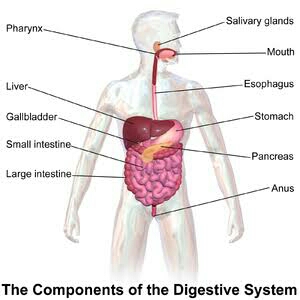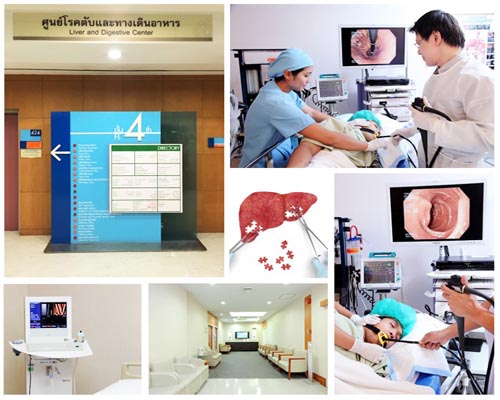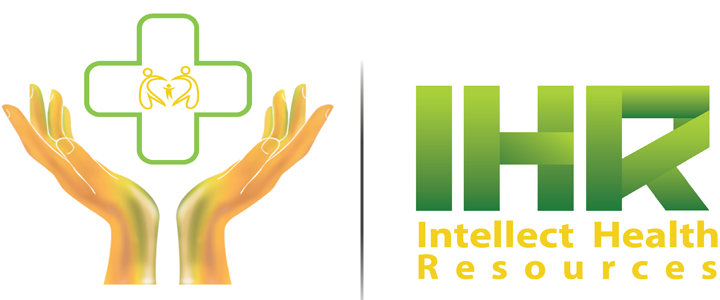
The gastrointestinal (GI) system form the very core of our bodies and it is composed of the esophagus, stomach, small intestine, colon, rectum, liver, gallbladder, bile ducts and pancreas. All of which play many essential roles in our body every second. It is not surprising that many common complaints take root in the GI system and are among the leading reasons that patients seek health care. If at any time these organs show signs and symptoms (occasional indigestion, heartburn, abdominal cramping, urgent bowel movements, or constipation) of disorder, it is an indication of the possible progression of a disease. Addressing the appropriate underlying GI issues not only helps relieve digestive discomforts, it also supports many other aspects of long-term health and able to detect the disease and approach the treatment early.
The Liver and Digestive Institute specializes in endoscopy and offers full–cycle diagnostic services and treatment for diseases related to the liver and gastrointestinal (GI) system, such as viral hepatitis, alcoholic hepatitis, cirrhosis, fatty liver disease, pancreatitis, gallstone-related diseases and many more.The Liver and Digestive Institute use the latest medical innovations and technologies. We are equipped with a team of specialists who draw from years of training and experience both in Thailand and abroad to provide Thai, expatriate and international patients with the most accurate diagnoses and best treatment plans.

Available Medical Investigations
Blood Test: As needed.
Example: Complete Blood Count, Lipid Profile, Liver Function Test, Tumour Marker, etc.
Stool Analysis: To find out any cause of bacteria, viruses and parasites infection.
Abdominal ultrasound: An imaging test to visualise the internal organs for their size, structure and any pathological lesions.
Esophagogastroduodenoscopy (EGD): It is a diagnostic endoscopic procedure that visualizes the upper part of the gastrointestinal tract to examine any abnormalities.
Colonoscopy: It is a medical procedure that examines the large bowel. The procedure is done by a firm and flexible plastic tube with a tiny digital camera and light at one end.
Barium X-ray: An imaging test which use barium with standard X-rays for examination of any abnormalities, such as tumors, ulcers, polyps, hernias, strictures and inflammatory conditions, of the GI tract.
CT Scan: It uses X-rays to make more detailed pictures of parts of your body and the structures inside your body. CT scan is used to identify details abnormalities within GI tract.
Available Services
We offer diagnosis and treatment of all liver, pancreatic, gastrointestinal and gallbladder diseases and conditions, including:
- Hepatitis A, B, C, and E
- Chronic or cholestatic liver diseases
- Genetic liver disease
- Cirrhosis
- Infections in the liver (such as liver abscesses, etc.)
- Primary and non–primary liver cancer
- Gastroesophageal Reflux Disease (GERD)
- Gastric or duodenal ulcers
- Chronic inflammatory diseases of the small intestine (e.g. Crohn’s disease, ulcerative colitis)
- Acute and chronic diarrhea or constipation
- Upper or lower gastrointestinal bleeding
- Hemorrhoids and anorectal disorders
- Functional gastrointestinal disorders such as irritable bowel syndrome (IBS) and functional abdominal pain syndrome (FAPS)
- Motility disorders of the gastrointestinal tract (e.g. achalasia)
- Chronic or acute pancreatitis
- Gallstones and choledocholithiasis (bile duct stones)
- All forms of stomach, colon, small bowel, esophageal, pancreatic and gallbladder cancer
We offer a wide variety of procedures, including:
- A variety of endoscopic and laparoscopic treatments for gastrointestinal tumors, bile duct diseases, etc. (gastroscopy, colonoscopy, enteroscopy and endoscopic ultrasonography (EUS). In cases of advanced lesion removal, endoscopic mucosal resection (EMR) or endoscopic submucosal dissection (ESD) techniques are offered).
- Endoscopic retrograde cholangiopancreatography (ERCP) which is used to precisely diagnose and treat abnormalities in the bile duct, leaving no surgical scars on the abdomen
- Gastrointestinal manometry
- Anorectal manometry
- Anorectal biofeedback therapy
- Gastrointestinal wireless capsule endoscopy
- Liver biopsy
- Liver treatment procedures
- Treatments for liver and digestive diseases and disorders using x–ray techniques instead of surgery
- Percutaneous Ethanol Injection (PEI) — a type of cancer treatment in which alcohol is injected directly into the cancerous mass
- Transcatheter oily chemoembolization (TOCE) — a type of chemotherapy in which chemical agents are directly injected into the cancerous tumor by inserting a small tube through the hepatic artery
- Transarterial embolization (TAE) which uses gelfoam to prevent acute bleeding in the liver and digestive system.
- Radiofrequency Ablation (RFA) — a form of liver cancer treatment which uses radio frequency
- Treatments for liver, bile duct and digestive diseases and disorders with surgery
- Esophageal manometry
- Small bowel manometry
- Surgery colon cancer
- Endoscopy cancer
- Colon Cancer Treatment

